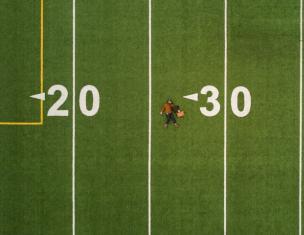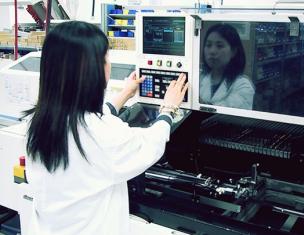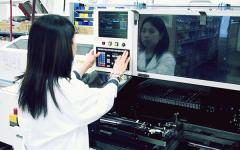Defectologist- a specialist who helps children suffering from mental and physical disabilities to adapt to society. Defectologists can be attributed to the group of special teachers, their professional activities are closely related to medicine, sociology, and psychology. The profession is suitable for those who are interested in biology and psychology (see the choice of profession for interest in school subjects).
Who is a defectologist?
Defectologists are often confused with speech therapists, but the former work with children who suffer from delayed speech development or CNS diseases, while the latter correct the speech of absolutely healthy children. Conditionally defectologists can be divided into those who are engaged in scientific activities, and those who are practicing correctional teachers. There are several areas of defectology, which determine the field of activity of the teacher:
- speech therapist who studies problems with speech development correcting them;
- deaf teacher and typhlopedagogue working with people who have problems with hearing or vision, respectively;
- an amblyologist who deals with patients suffering from visual impairments, blind children;
- oligophrenopedagogue and orthopedist working with children suffering from delay mental development and musculoskeletal system, respectively.
Defectologists working with any of the above areas are engaged not only in behavior correction, but also social adaptation patients, their education, rehabilitation.
Features of the profession defectologist
Demanded defectologists daily contact with children and their parents, attend conferences, do scientific work, consult with their colleagues working in the field of medicine, pedagogy, and sociology. They guide their young and adult pupils, helping them find their place in the world.
Main responsibilities:
- examination of patients, assessment of their condition and level of development;
- work with medical records of patients;
- choice teaching materials, drawing up individual programs taking into account the characteristics of patients;
- carrying out work aimed at correcting shortcomings in the development and behavior of pupils;
- conducting regular examinations, adjusting the individual program based on the results of the examination;
- work with teachers, parents of children;
- study of hobbies, features and inclinations of pupils;
- assistance in choosing a profession, social adaptation;
- scientific work, documentation.
Experienced defectologists constantly use modern techniques in their work, being very active and enthusiastic people. The work of a defectologist is very important, because he helps children adapt, choose a profession, communicate with people, and gain all the necessary knowledge.
Pros and cons of the profession of defectologist
pros
- Providing assistance to children and adolescents.
- The profession is important and necessary.
- Career prospects.
- Opportunity to combine practice with scientific activity.
- The versatility of defectology.
- Defectologists are specialists in demand in the labor market.
- Social package, work with pleasant colleagues.
Minuses
- The need to communicate daily with different people who are not always satisfied with the methods of the defectologist.
- Difficulties that arise when communicating with children.
- Psycho-emotional stress.
- The success of the work carried out depends not only on the defectologist, but also on the parents, teachers, doctors who treat the child.
- Little wages.
- Lots of job responsibilities.
Important personal qualities of a defectologist
Defectologists work with children suffering from acquired and congenital diseases, so they must be distinguished by patience, love for children, and responsibility. Every day, correctional teachers are faced with joy and sadness, there are also conflict situations, so inner peace, harmony and endurance are important.
A defectologist should be a benevolent, peaceful and very enthusiastic person who is ready to devote himself to his beloved work. A correctional teacher may not like children, but he is obliged to treat his little pupils with respect and understanding.
- Responsibility.
- Patience.
- Indifference.
- Equilibrium.
- Severity.
- Objectivity.
- The makings of a leader.
- Sociability.
- Creativity.
- Attentiveness.
Defectologist training
work as a defectologist higher education impossible, therefore, an applicant who decides to connect his life with this direction must submit documents to a university that has a defectology faculty (specialty code 44.03.03). Entering the university at the faculty of defectology, the student takes exams in mathematics, biology and the Russian language.
People who have a specialized education in the field of pedagogy or psychology can retrain as a defectologist. In this case, the training will take not 5-6 years, but several months, you can undergo retraining remotely, after which the graduate will receive a state certificate.
The Higher School of Technology and Management (HSTU) provides training in the direction of "Defectology" and other pedagogical specialties. Training takes place in part-time form with the use of remote educational technologies allowing you to combine work and study. The educational activities of VSTU are licensed and meet professional standards. Now you have the opportunity to get a 50% discount using the promo code uchitel50. The cost, taking into account the discount, will be 4,975 rubles, and for - only 1,000 rubles. Hurry up to get through professional education at the lowest price!
Center "Russian education", distance learning
Applicants can take retraining courses for 6, 8 or 10 months. During this time, the student will have access to the teaching materials, he must study them, in otherwise it is not possible to write a good attestation paper. Education is paid, but the center also has preferential programs.
Capital Training Center, distance learning
Paid courses for people who want to retrain, having the necessary set of professional knowledge. The duration of the course is 500-1000 hours, an internship is provided, students must pass not only final certification but also planned offsets.
Applicants are offered a wide range of areas of study. One of the specialties that can be seen in some universities, academies and institutes is "Special (defectological) education". People who have studied in this direction are considered unique and sought-after specialists in modern world. Which universities offer this Who do graduates who have mastered the educational program and received diplomas work for?
Defectological education: the essence of the direction
Children and adults with handicapped need expert help. It is provided by trained teachers-defectologists. This profession is received by people after completing their studies at universities in the direction of "Defectological education".
During their studies, each student studies many disciplines. These include "Pedagogy", and "Psychology", and "Medico-biological foundations of defectology", and "Clinic of intellectual disorders", etc. As a result of mastering the program, a person can engage in correctional-pedagogical and consultative-diagnostic activities :
- correct developmental disorders;
- develop individual educational and correctional programs;
- study the features of psychophysical development and the needs of persons with disabilities;
- provide advice to people with disabilities and their families.
Profiles of special (defectological) education
Entering the direction "Defectology education", applicants, as a rule, make a choice between profiles. Their number depends on the university. For example, applicants for undergraduate studies may be offered the following profiles:
- "Special Psychology";
- "Speech therapy";
- "Pedagogical and psychological support for children with disabilities";
- "Oligophrenopedagogy".
To obtain deeper knowledge in many universities in the direction of "Defectological (special) education" a master's program has been created. The training programs are as follows:
- "Inclusive education";
- "Pedagogical and psychological support for persons with disabilities";
- "Speech therapy (education of persons with speech impairment)";
- "Innovative technologies in defectological education".

The relevance of the specialty in the modern world
Universities, academies and institutes with the specialty "Defectology Education" invite students to study. Members admissions committees, teachers talk about its relevance, because at present the problem of education of children with disabilities is quite acute. About 9-11% of persons from among the children's population need the help of teachers-defectologists. Some adults also need help.
People who have studied in the direction of "Special Defectology Education" are engaged in the development, upbringing and education of children with various developmental problems related to both the psychological and physical spheres. The areas of work of specialists are aimed at people with acquired and congenital visual impairment, hearing impairment, pathologies, intellectual decline, psychoneurotic reactions.

The presence of the necessary personal qualities
The direction of training "Defectological education" is interesting, but it is not suitable for all people. When choosing this specialty, it should be borne in mind that a defectologist must have certain personal qualities. This specialist must be:
- proactive;
- energetic;
- benevolent;
- tactful;
- confident in the successful results of their activities, the applied correctional program.
The future specialist should be optimistic. Optimism among already working people is manifested in a socially active attitude towards a subject with limited opportunities, towards a society in which pupils will be included, towards oneself.
Getting an education at RNU
In almost every city there is a university in which there is a direction "Defectology education". There are several of them in Moscow. One of the educational institutions - Russian new university(RNU). It is an autonomous non-profit educational organization that has existed since 1991.
"Defectological education" at the university also offers pedagogy. Upon admission, each applicant is given the opportunity to choose the most convenient form of study for himself. Daytime classes are held 5 days a week. Couples start at the university at 9 o'clock. In the correspondence form, students independently master the educational program. Classes at the university are held 2 times a year during sessions, the duration of which is about 20 days.

Education at MPSU
Among the universities that train defectologists, one can also cite the Moscow Psychological and Social University (MPSU) as an example. This educational organization is also an autonomous non-profit institution. The university has been operating since 1995.
The Moscow Psychological and Social University, formerly called the Institute, implements a huge number of modern educational programs. Among them there is a “Defectological education” for undergraduate studies. Full-time, part-time and extramural forms of education are offered. Master's programs for this direction are not provided at the university.

The future of graduates
People who have studied in the direction of "Defectological (special) education" in universities and received diplomas can work in various organizations:
- in educational institutions all types and levels;
- in special (correctional) preschool, school and medical institutions;
- in centers for the provision of psychological, medical, pedagogical and social assistance to the population;
- in institutions of social protection;
- in charitable and public organizations to work with people who have disabilities.

Graduates have a tough job ahead of them. When working with a specific person, they will need to provide assistance not only to him, but also to his relatives. Let's take an example. So, the teacher-defectologist deals with the child in accordance with the developed correctional program. Both he and his parents, close relatives need qualified help, because the family plays important role in the process of correctional and pedagogical influence. The essence of helping parents is advising on the development, education, socialization and integration of the child into society. Thus, the work will be difficult, but at the same time interesting, therefore the specialty "Defectological (special) education" deserves attention.
A speech therapist is a specialist who helps to form the correct speech or restore the lost speech function. Most often, he works with children, but adults may also need his help - in particular, to restore speech after a stroke.
This is a profession in demand: speech therapists are needed in medical centers, kindergartens, schools. They may also run a private practice and work with students on an individual basis. But before choosing this specialty, you need to understand all its nuances - we will talk about them.
Where do they teach to be a speech pathologist?
To work in this profile, you need to get a special defectological education in the profile of "speech therapy". This can be done after studying for several years at a university. But if you already have a higher education, and at the same time you graduated from the psychological or pedagogical faculty, you do not have to spend so much time. Instead, you can take retraining courses in a few months and get a new profession.
We offer distance learning* for a speech pathologist as part of several retraining and advanced training programs. With us you can:
- Retrain in defectology-speech therapy in order to work with children of any age.
- To study the specifics of working with non-speaking children.
- Take courses in preventive speech therapy. After completing them, you will be able to work with infants and children. early age.
- Learn to become a preschool teacher-defectologist.
See also to find the right program for you.
Related programs
19100 rub. 9890 rub.
49900 rub. 45100 rub.
Can a speech therapist work as a defectologist?
These are different professions. Let's understand the terms.
A defectologist is a specialist who works with children with disabilities, emotional disorders, developmental delays and other features. There are several narrow areas in this profession: for example, working with blind and visually impaired, deaf and hard of hearing children. A speech therapist works in one of these areas: he specializes in correcting speech disorders and language pathologies.
The deaf and hard of hearing, children with mental retardation or cerebral palsy and other children with disabilities in most cases have speech problems. That is why they need the help of both a defectologist and a speech therapist. The former provide comprehensive assistance, which is necessary to eliminate the primary defect, while the latter are engaged in the correction of speech disorders.
What are the responsibilities of a speech pathologist?
- Definition of language violations and selection of effective techniques, methods or technologies for their correction.
- Formation of coherent speech.
- Correction of incorrect pronunciation of sounds.
- Prevention of dysgraphia and dyslexia - violations of writing and reading. These features are most often detected only in the primary grades. The work of a speech therapist with a preschooler allows you to prevent them or even completely avoid their appearance.
- Formation of phonemic hearing.
- Development of grammar skills.
- Increase vocabulary. Thanks to this, the specialist also helps the child to expand their horizons.
At what age can a child study with a speech therapist?
The traditional answer to this question is from the age of three (although defectologists start working with children with disabilities much earlier).
There is a reason for that. Speech is formed in stages, so some language pathologies cannot be detected at an early age. In most cases, minor problems resolve themselves over time, and specialist assistance is not required. If the difficulties remain, the age of 3 to 5 years is a good time to eliminate them.
But there is also preventive speech therapy. It is designed to prevent speech disorders and involves working with infants and young children who are at risk. In this group, babies with cerebral palsy, autism spectrum disorders, sensory defects and some other features. The main rule in such cases is to start working with the child as early as possible, since the cost of being late is too high. Therefore, the work of a speech therapist with a child under three years of age in these situations is useful, and often necessary.
* Correspondence form of education with the use of distance learning technologies.
A speech pathologist is a highly qualified specialist working with special children. As all colleagues of such professionals agree, their work is more difficult than that of most teachers. We have to interact with a variety of children with vegetative and functional disorders. The task of a speech therapist is to work out the ability to speak with kids who have not been taught this basic skill for a person at a time when this is due to age.
Modernity and education
The requirements of our everyday life are such that we have to interact with machines more and more time. This has a number of positive aspects, but it was not without its minuses: the field for the work of defectologists-speech therapists is becoming wider. Many children, being excellent with technology, have difficulty mastering speech skills, suffer from speech pathology and tongue-tied tongue. This leads to social problems and interaction difficulties, as a result, internal psychological problems. The child becomes withdrawn, uncommunicative, unsure of his own abilities, afraid to expand his horizons. Such a child rarely allows himself curiosity and learning new things, but often feels unhappy.
It so happens that many modern children learn to live by spending time in front of TV screens, and then they try to copy the behavior and manner of speech of the actors, heroes of the series. Parents, too busy with work, simply do not have the opportunity to control this process.
Everything will be taught! Or not?
Many adults are accustomed to thinking that at school a child will be taught everything necessary - to speak, count, behave correctly. The opinion is erroneous - such obligations are not assigned to the school. The period of studying the primer is strictly limited by the time frame, and teachers simply do not have the opportunity to adjust the program for individual children who do not keep up with the main group. Simultaneously with the study of the primer, the baby is taught to read in syllables. Sometimes parents, having at some point discovered the unsatisfactory results of such training, clutch their heads in horror and start looking for a defectologist-speech therapist who can correct the situation.
It is known from pedagogical practice that incorrect speech perception is possible in intelligibly speaking, congenial children, if there are phonemic difficulties. This is more typical of the preschool age period. Lefties are more likely to have problems. If you do not pay attention to it in time, to high school the problem will cause a backlog in various humanitarian disciplines.
How to help?
The defectologist-speech therapist has specific knowledge and approaches that allow him to successfully interact with special children. Such a specialist practices extraordinary approaches that are relatively generally accepted in pedagogical practice. Its main task is to help the child get involved in educational process. To do this, you need to look at the individual characteristics of a particular child, understand what are the causes of the problems, what help is needed.
An experienced defectologist - a speech therapist and a psychologist, as they say, "in one bottle." Such a specialist should be able to create friendly relations with the child, organize the atmosphere during classes, find points of contact with the student, and enter into close contact with him. Professionals in this category work with children of preschool and school age groups. To do this, you need to be able to use different programs, choosing the best one for a particular case.
As part of the workflow, a speech therapist-defectologist (and a compatibility psychologist) teaches a child to write, read, forms the correct pronunciation, works intensively to eliminate sensory difficulties, using individual programs.
Do I need it?
A children's speech pathologist-defectologist seems to many parents an incomprehensible specialist, whose help their children definitely do not need - all of a sudden, others will think that the child is lagging behind in development! As professionals say, this approach is incorrect. There is no need to be afraid of a defectologist, to be shy if you need the help of a qualified specialist. On their own, an average person is unlikely to be able to teach a child who has problems with speech and reading, since there is no access to specific methods that speech therapists use in their work - and this has been taught in universities for more than one year.
Poor reading rules out a child's future literacy. Illiteracy, inertia of the language does not allow a person to fully think. Teaching speech is a difficult task, and the work requires a lot of time. A children's speech pathologist-defectologist painstakingly works on all the difficulties inherent in a particular case, but in a week or two classes with a new specialist, the baby will not learn everything as if by magic - you should not count on this, the course will be long.

Problems and reality
AT last years the breadth of the field of work of a speech pathologist is also increasing due to an increase in the number of children suffering from various disorders, deviations due to the peculiarities of the psyche and physiology. The help of a specialist is needed in case of cerebral palsy, visual impairment, hearing impairment, with deficiencies in language culture and the decay of cognitive activity.
Not everyone understands how big the difference is between a speech therapist and a defectologist. These two concepts are similar, so they are often combined into one. It is only necessary to remember that defectology is a science designed by pedagogical methods to correct the behavior of a patient who has certain developmental deficiencies. For this, restorative approaches and educational methods are used.
Speech therapy is one of the branches of defectology along with typhlo-, surdo-, oligophrenic pedagogy. A defectologist-speech therapist teacher is a specialist who uses defectology methods to correct pathologies associated with speech culture. Among defectologists there are also deaf-, typhlo-, oligophrenopedagogues. All of them are highly specialized professionals who are able to cope with a specific problem inherent in the child.
What is the job?
A speech pathologist-defectologist will help if the child has language imperfections. You can contact such a professional through a specialized institution. Sometimes speech therapists are on the staff of mass educational institutions, but this is the exception rather than the rule. A speech pathologist-defectologist will help if you seek help from a correction center, a developing circle, as well as a private practice.
Before starting work with a child's speech therapist, you need to show the commission of psychologists and doctors. Here they will make a diagnosis, evaluate the causes of deviations. The speech therapist, having a conclusion in his hands, determines the features of the case and the tools that will help in a particular case.
Many are accustomed to thinking that the profession of "speech pathologist-defectologist" is a specialization aimed at correcting the pronunciation of sounds by a child. In fact, this representation is very simplified. The main task of a speech therapist is to improve the patient's speech, to form the ability to speak coherently, to accumulate a vocabulary base, to develop phonemic awareness, master the grammar and begin to pronounce words correctly. A speech therapist teaches the art of inflection. Correct and regular classes help to eliminate written violations, improve memory and activate thinking, stimulate fine motor skills and perception of space.
What to work with?
The specialty "speech pathologist-defectologist" is available in a number of universities in our country, and for many applicants it seems attractive, since in the future there are unlikely to be any difficulties with employment. Before entering such a direction, you need to familiarize yourself with the duties of a defectologist so as not to be disappointed in the future.
In many ways, the functions depend on the specific workplace, there is no universal job description, but it is possible to formulate the scope of work in general terms. A speech therapist is contacted when the child's deviations are such that it is impossible to cope with them within the framework of a general education program. A defectologist helps with deviations in vision, hearing, and intelligence.

The specialist works on the formation of sensory skills, taking into account individual disorders, and also instills hygiene standards, teaches to play and shows game techniques - in the presence of developmental features, children often have playing abilities below the average level. Through speech, the child gets the opportunity to expand his horizons and get acquainted with the world around him, and through writing - to analyze. The child is taught to speak and write, giving an idea of the sounds, their sequences.
Do I need?
Reviews of speech pathologists-defectologists are different. Some parents whose children needed such specialized help admit that the specialist helped a lot. They indicate that within the framework of the work the child received general ideas about objects, the space around him, learned to interact with them. Others note that a long course improved motor skills, coordination of movements, and the child herself became more inclined to creative work.
It is noted that professionals pay special attention to the development of cognitive skills, thanks to which the child remembers better, the ability to concentrate attention increases, mental activity is activated. For this, different methods and approaches are used.
There are other reviews about speech pathologists-defectologists. Some say that working with such specialists is futile, and the education of the child cost a lot of money and became only a source of self-doubt in the child. As a rule, this is possible with an unsuccessful choice of a specialist. In order not to get an unpleasant experience, you should first study independent feedback on the work of various specialists in your area, only after that send the child to preschool.
When is a specialist needed?
It is not always clear to parents, the time has come to turn to a professional or the child is developing normally, a speech pathologist is not required. As experts say, the child should be sent for correction, if there is evidence for this, from a very early age. To a speech therapist is recorded from the age of three. The difference in time is explained by the characteristics of a particular condition, the presence of deviations (hearing, visual impairment, etc.).
When planning to send a child to a defectologist, it is important to do it on time - better sooner than later. Getting a qualification at a university, a speech pathologist-defectologist learns firmly - work must begin already when the disorder is accurately diagnosed. Speech skills in a baby develop gradually, improvement occurs step by step. In order for a child to start speaking, he needs a well-formed speech apparatus, mature centers in the cerebral cortex. An important condition is being in a society. This does not allow the speech therapist to start work before the patient reaches the age of three - only by this time all the prerequisites are finally ready. If, before reaching the age of 3, it is clear that the child is far behind, it is necessary to contact the commission for the selection of a defectologist - probably at first it will not be a speech therapist, but a specialist of related qualifications.

I want to become a professional!
To get the appropriate qualifications, knowledge and skills, you need to choose a place where to study. Speech pathologist-defectologist is a specialization, which is taught in several educational institutions of our country. In many ways, the quality of a future specialist depends on the institution in which a person receives an education. So, universities located in the central region are traditionally considered prestigious, but the number of places is limited, so not everyone can study here. Mostly speech therapists are trained at pedagogical universities.
When planning to get an education, you can enter the Ural GPU or the Leningrad Pushkin. Training of speech pathologists-defectologists is practiced in Magnitogorsk, Chelyabinsk, Tyumen and Kurgan State Universities. You can enter the Ivanovo State University, the First Pavlov Medical University in St. Petersburg or the Herzen State Pedagogical University. They study as a speech pathologist at universities in Moscow - at the Institute of Psychoanalysis, Moscow State Pedagogical University, City Pedagogical University, Pedagogical State University.
Learning Features
You can enter the specialty "speech pathologist-defectologist" after school. Educational institutions that have a defectological department have the right to study in such a specialty. Here they teach not only narrow-profile disciplines, but also general child psychology, pedagogy, and also explain how to interact with children who have developmental disabilities. The defectologist in the process of learning receives medical knowledge about the structure of the speech apparatus, organs of vision and hearing.
Persons who have already graduated in various pedagogical and medical specialties are often interested in whether it is possible to qualify as a speech pathologist-defectologist, having passed a corrective accelerated education, a short course program. This is currently not possible. Defectologists are trained only in You can enter the second higher education. In this case, the training program will take no more than three years.

General view
Defectology is a scientific direction devoted to the laws, features of the development of children with mental, physical abnormalities, imperfections. Science deals with the peculiarities of not only education, but also the upbringing of such an audience. Specialists working with children are called upon to develop the child, help him adapt in society, life, study, get a profession and realize himself in other areas of life.
In addition to a wide-profile speech therapist, designed to help with a variety of speech disorders, there are deaf teachers. These specialists work with children with hearing problems. The contingent is very different - from those who are simply hard of hearing to completely deaf. If it is necessary to teach a child who has deviations, a lag in the development of the intellect, an oligophrenopedagogue will help. With visual impairments, a typhlopedagogue will come to the rescue.
On the initial appointment the specialist examines the child, determines the features of the violations, talks with the parents and clarifies the circumstances in which the deviation was formed and developed. If necessary, the defectologist may advise you to undergo additional examinations, take tests. Then the specialist will analyze the information received.

Defectologist-speech therapist: what is he?
It is believed that a highly intelligent and purposeful person with a developed intuition can become a good specialist. In this area of work it is necessary to be observant and communicative, mentally and emotionally stable. For a defectologist-speech therapist, sensitivity, the ability to empathize, responsiveness and tact are important. This work is suitable for patient and philanthropic people, sociable, with a good memory. To master all professional skills, it is necessary to have increased communication skills. It is important for a speech therapist to speak clearly and distinctly, to be resistant to stress and to have strong nerves. An important personal feature is a well-trained voice.
To cope with their tasks, a speech pathologist-defectologist must be able to diagnose the child's condition, teach him, taking into account individual deviations, help the child develop. An important skill is the technique of getting in touch with the trainees, regardless of their age. A speech pathologist should be responsible, friendly. It is impossible to imagine a successful person in this field if he does not have a high level of responsibility. In addition to ideas from pedagogy and medicine, a defectologist needs psychological preparation, knowledge of the mechanisms for correcting deviations. It is necessary to be able to assess the picture as a whole, determine the possibilities for correcting individual disorders, predict the development of the child, taking into account the changes made to his psyche and skills.
After graduating, find workplace can be in educational institutions for preschool and school age groups. There are also specialized correction centers - private, public.

To some extent, a psychologist, a teacher and an educator are considered close to the profession in question.
There are a huge number of professions in the world aimed at helping people who inspire respect and a feeling of deep gratitude: medical and social workers, teachers, rescuers, etc. However, none of them can be compared in complexity and importance with the defectologist profession, whose representatives work with a special category of people - with abnormal children.
There are a huge number of professions in the world aimed at helping people who inspire respect and a feeling of deep gratitude: medical and social workers, teachers, rescuers, etc. However, none of them can compare in complexity and importance with defectologist profession, whose representatives work with a special category of people - with abnormal children.
It should be noted that the profession of a defectologist is unique in its own way, since it is at the junction of several sciences at once: medicine, pedagogy, psychology, sociology, etc. It is these specialists who help children with mental disabilities to socialize in society and give them a chance for a happy and fulfilling life in the future. And there is nothing surprising in the fact that increased demands are made on those who dream of devoting their lives to this necessary and certainly noble cause. After all, defectologists should not only understand that the fate of children with a difficult fate depends on the quality of their work, but also be prepared for the difficulties that this profession is fraught with. What are these difficulties? And this is what we will try to tell in the framework of this article.
Who is a defectologist?

A highly qualified specialist who knows the methods and methods of adaptation, education and upbringing of children with mental and / or physical disabilities. Defectologists are usually divided into two groups: those who study, teach and educate abnormal children, and those who specialize in correctional pedagogy.
The name of the profession comes from the Latin defectus (lack) and the Greek λόγος (teaching). In other words, at its core, a defectologist studies shortcomings (origin, patterns and features) and develops methods for their correction. Defectology cannot boast of a centuries-old history, since for a long time children with disabilities were either destroyed or left alone with their problems.
And only at the beginning of the 20th century, as a result of the active development of medicine, experts realized that deviations in mental and physical development are not yet a sentence. Such children can and should be treated. A great contribution to the development of defectology was made by such doctors and scientists as Philippe Pinel, Jean Itard, Ekaterina Gracheva, Lev Vygotsky, Louis Braille and many others.
Over the years defectology has undergone significant changes: from a theoretical science that studies the features of the development of abnormal children, it has grown into a practical teaching aimed at developing and implementing effective methods correction of congenital or acquired defects. In parallel with this, the profession of a defectologist was divided into several narrow specializations, each of which deals with a certain area:
- defectologist-speech therapist - studies and tries to correct speech disorders and defects;
- defectologist-deaf teacher - is engaged in the education and upbringing of children with hearing impairments;
- defectologist-typhlopedagogue - specializes in the upbringing and education of children with visual impairments;
- defectologist-deaf-tiflopedagogue - works with deaf-blind-mute children;
- defectologist-ambliologist - is a specialist in the field of adaptation and social rehabilitation of visually impaired and blind children;
- defectologist-oligophrenopedagogue - is engaged in training, education and social rehabilitation of mentally retarded children.
Regardless of the line of business defectologist's duties include: examination of the child, identification of violations, clarification of the circumstances of the occurrence and development of violations, the appointment and conduct of remedial classes, measures aimed at the adaptation of abnormal children in society, the development of rehabilitation programs, the implementation of measures to prevent individual violations, research activities, consulting services, etc.
What personal qualities should a defectologist have?
Despite the fact that a defectologist can work with both children and adults, the main focus of the specialist's activity is still aimed at correcting the development, educating and training the younger generation, which requires a special approach. Therefore, such a specialist should, first of all, be distinguished by a propensity to work with children, patience and observation. In addition, to perform well work for a defectologist It helps to have such personal qualities as:

And most importantly, the defectologist must see in children who do not fit into the generally accepted framework, a full-fledged personality. From the professional knowledge and skills necessary for a specialist to perform his work, extensive knowledge in the field of biology, psychology, special and age-specific pedagogy, vocational guidance, sociology and jurisprudence deserve special attention. In addition, the defectologist must regularly monitor innovations and discoveries in his field, attend courses and master classes to improve his skills and strive for professional self-improvement.
Advantages of the defectologist profession
It is not difficult to guess that the main advantage of the defectologist profession one can safely name the opportunity to help problem children, for whom this specialist is almost the only chance for a full and positive life full of positive events.
If we talk about more "earthly" advantages, then first of all it is necessary to note the demand for defectologists, who can easily get a job in their specialty both in medical institutions and psychological centers, and in preschool and school educational organizations. At the same time, a defectologist can combine the work of a full-time employee with the provision of professional services in a private manner. Naturally, this allows the specialist to receive quite a decent total income.
Taking into account the fact that "random" people very rarely get the profession of a defectologist, and even more so they conduct professional activities, it can also be argued that the work gives the specialist pleasure. Moreover, he sees the result of his work with his own eyes.
Disadvantages of the defectologist profession

Working with children, especially with such as abnormal children, is characterized by increased psycho-emotional stress, which can cause chronic fatigue and depression in a specialist. Every day to see the suffering of children (and many children understand that they are different from their peers, and suffer from this) is very difficult, and only true enthusiasts of their work can withstand such stress.
Another significant disadvantage of the defectologist profession is the meager official salary of a specialist working in state institutions. Unfortunately, judging by the size of the salary (and it is about 15-20 thousand rubles), the state shows its respect and interest in the work of a defectologist only in words that, as you know, "you won't be fed." Therefore, young professionals, before the emergence of private clientele, should not count on solid incomes.
No matter how talented a defectologist is, the result of his work largely depends on the desire of parents to help their child. After all, a specialist cannot deal with a baby throughout the day, so the bulk of the classes fall on the shoulders of the child’s relatives and friends. And if the parents do not diligently follow all the recommendations of the defectologist, then all the efforts of the specialist may be useless.
Where can you get a defectologist profession?
As we mentioned above, defectology "stands" at the junction of many sciences. However, the predominant direction is still pedagogy. Therefore, if you feel a calling in yourself and want get a profession of defectologist, then you will have to turn your attention to pedagogical universities, on the basis of which the Department of Defectology works. It should be noted that in the process of learning, students have to not only learn the basics of pedagogy and the features of working with handicapped people, but also learn to provide the first necessary psychological and medical assistance in emergency situations. In other words, you will receive Teacher Education with a medical background.
Many people are interested in whether it is possible to get special defectological education at specialized courses(that is, according to the accelerated version), provided that the future specialist already has a diploma in pedagogical or medical education. No. You still have to enter a pedagogical university at the department of defectology. True, the training period in this case will not be the traditional 5 years, but only 2-3 years.
And of course, when choosing educational institution best to prioritize leading pedagogical universities of Russia, which include.









